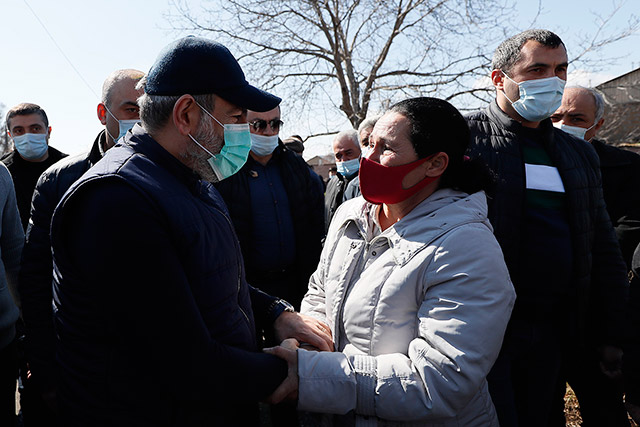I noticed some excitement in the Armenian opposition regarding the results of the December 5 local elections. The results of the voting show that the rating of the government has fallen, because in the communities where the government won the last parliamentary elections, now the Civil Contract has lost. I can not say anything about the rating; even if sociological polls are conducted, we still will not believe them. But it seems to me that it is wrong to derive one from the other. It is impossible to take the results of the local elections and say, “this is how people will vote in the national elections.” There are different patterns here.
Let’s imagine the portrait of a typical voter who voted for the ruling power on June 20. Suppose it is a 50-60-year-old woman who says, “If a Turk comes, enters our house, and slaughters my grandchildren, I will still vote for Pashinyan.” Therefore, the “Pashinyan-not Pashinyan” dilemma is important for such a voter. But the name “Civil Contract” may not say anything to them. They may be unfamiliar with the Civil Contract’s candidate for mayor, but there is a high probability that they will vote for the “Poghos Petrosyan” or “Petros Poghosyan” alliance because they personally know or like Poghos or Petros. This does not mean that this voter will not vote for the list headed by Pashinyan in the national elections.
No matter how much people formally vote for party lists in local elections, the process is not partisan in its content. Take the Nairi community where I live as an example. Here, according to preliminary data, the Reorganized Social-Democratic Hunchakian party received the maximum 44.94% of the vote. I suppose that few residents of Yeghvard and the surrounding villages have no idea of what social democracy is, who the Hunchaks are, and its “reorganization.”
They voted for the incumbent mayor of Yeghvard who does not work poorly, and, by the way, the enlargement in 2017 registered some positive changes. It is noteworthy, of course, that Norayr Sargsyan preferred not to deal with any pro-government or well-known opposition party. But again, the results of those elections do not suggest that the majority will not elect Pashinyan again during the parliamentary elections in the Nairi community.
Read also
I do not think that the voters have changed dramatically in 5.5 months. And why the electorate of the current government thinks that it is better for the Turks to slaughter their grandchildren but for Pashinyan to stay is the subject of a separate analysis. This analysis should be done calmly, without offending the voter. As impossible as it may seem.
Aram Abrahamyan




















































